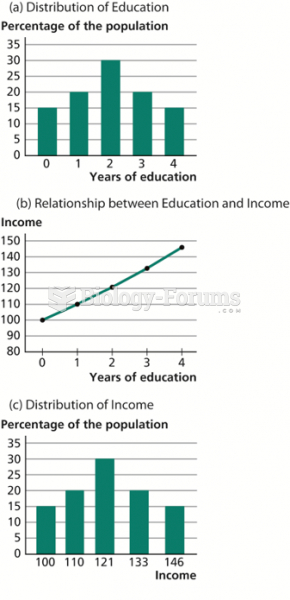|
|
|
Historic treatments for rheumatoid arthritis have included gold salts, acupuncture, a diet consisting of apples or rhubarb, nutmeg, nettles, bee venom, bracelets made of copper, prayer, rest, tooth extractions, fasting, honey, vitamins, insulin, snow collected on Christmas, magnets, and electric convulsion therapy.
During the twentieth century, a variant of the metric system was used in Russia and France in which the base unit of mass was the tonne. Instead of kilograms, this system used millitonnes (mt).
The average human gut is home to perhaps 500 to 1,000 different species of bacteria.
About 100 new prescription or over-the-counter drugs come into the U.S. market every year.
The B-complex vitamins and vitamin C are not stored in the body and must be replaced each day.






